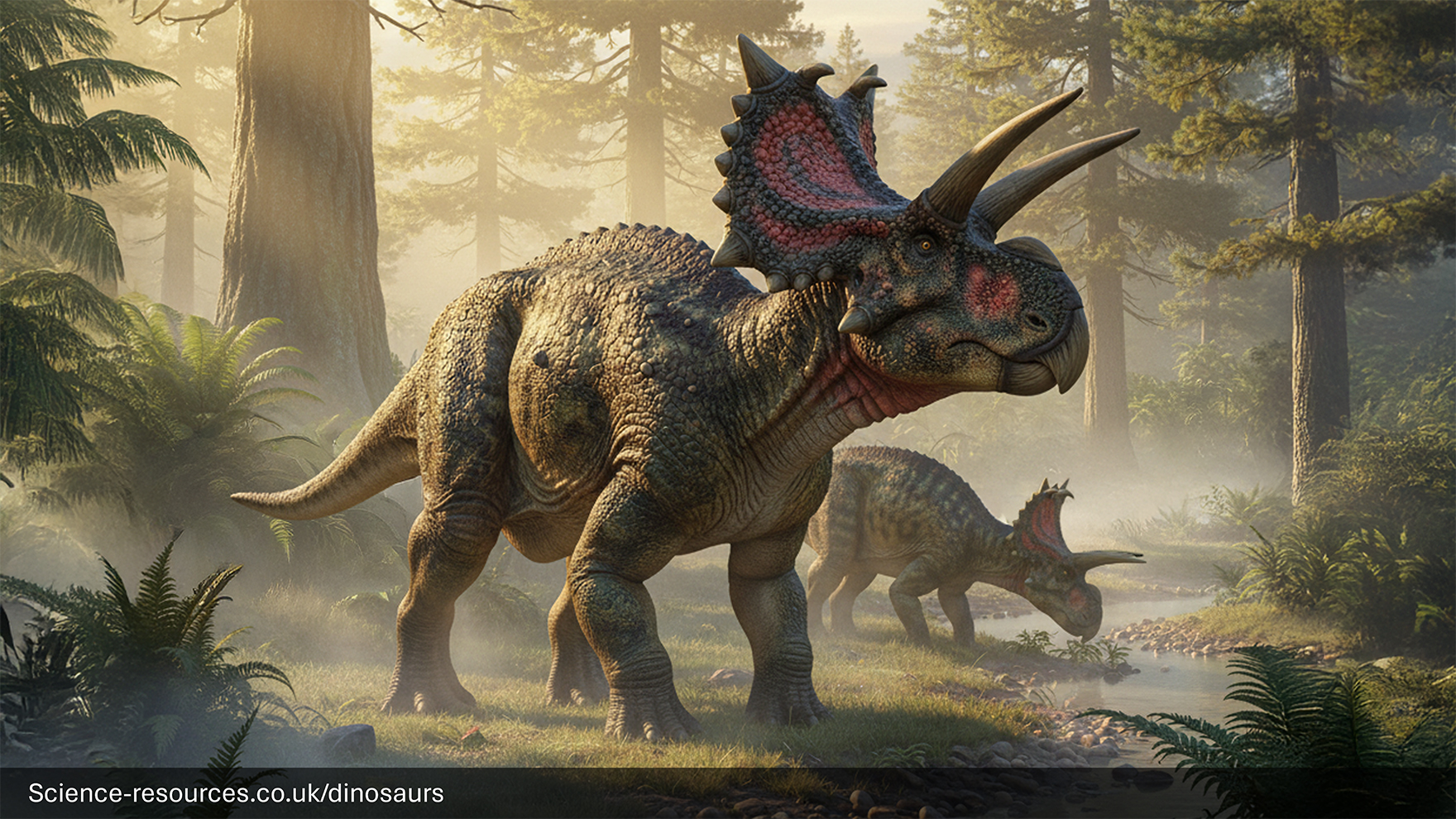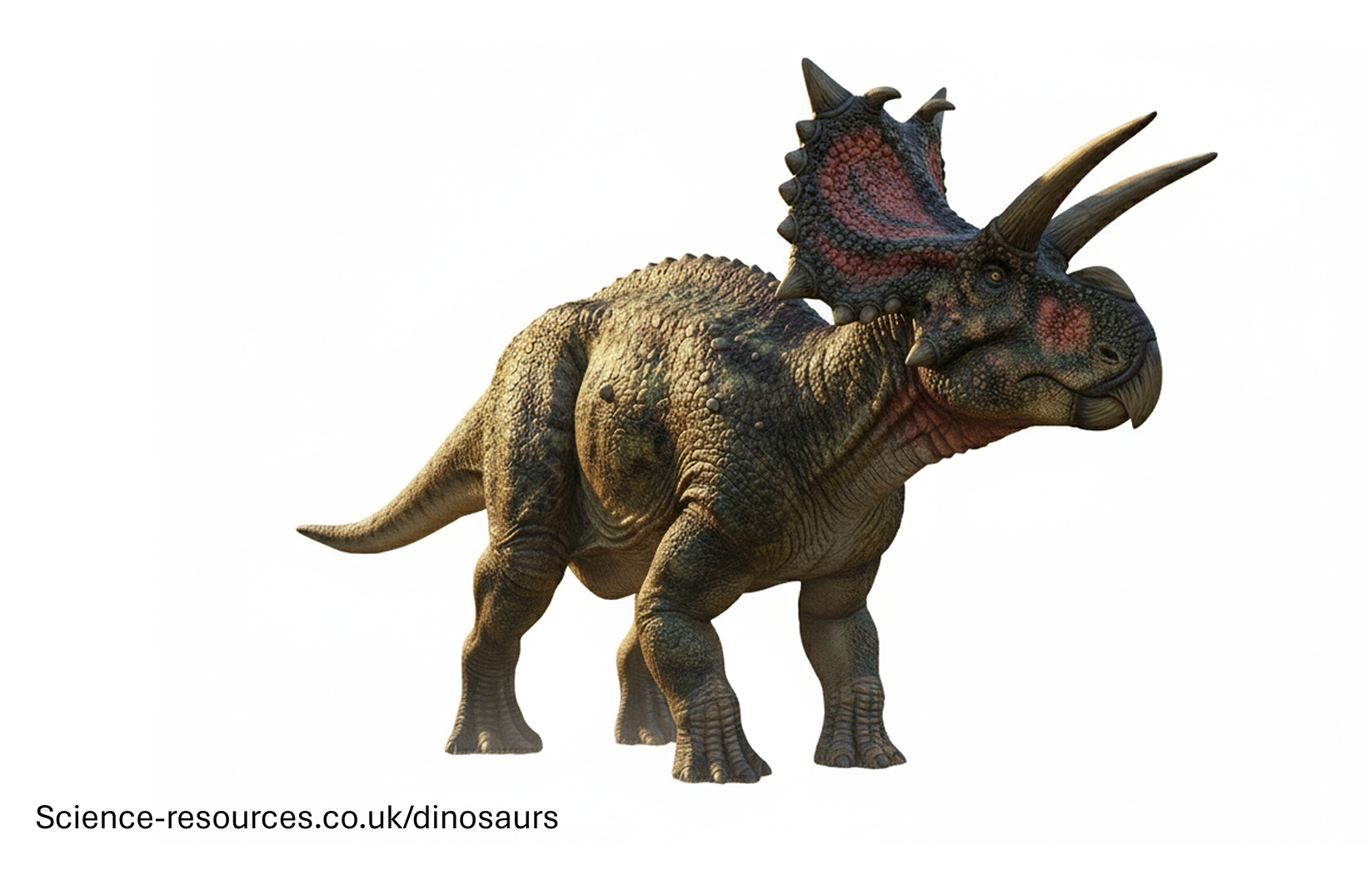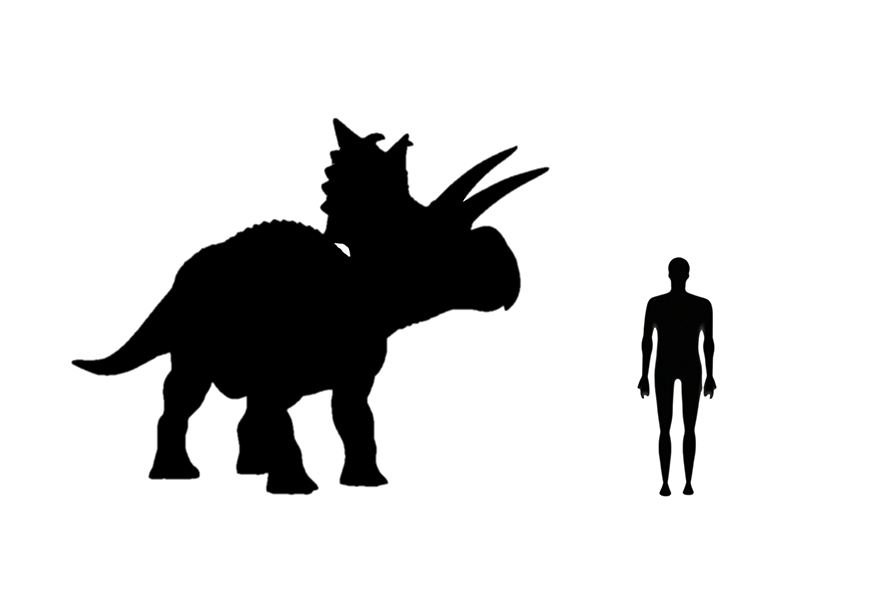Dinosaurs A:Z | X
You may also be intrested in: Free Dinosaur games
Dinosaurs: Xenoceratops (Alien Horned Face)
You may also be intrested in: Free Dinosaur games
Xenoceratops was a remarkable, horned dinosaur from the Late Cretaceous Period, about 78 million years ago in what is now Canada. Its name means "alien horned face" because of its unique and elaborate arrangement of horns and frill on its head. Although not as famous as Triceratops, Xenoceratops was among the earliest known ceratopsids in North America! Xenoceratops was a medium-sized ceratopsian. It grew to about 6 metres (20 feet) in length and stood approximately 2 metres (6.5 feet) tall at the shoulders. Weighing up to 2,000 kilograms (about 2 tonnes), it was as heavy as a large car! Xenoceratops had a large, bony frill at the back of its head, decorated with several horn-like projections. It also had prominent brow horns above its eyes and a smaller nose horn. Its body was heavy and sturdy, with four strong legs built for supporting its weight. The head frill and horns were likely used for defence and display, making Xenoceratops look quite spectacular! Generative AI Notification: Some elements of this image have been created or enhanced using AI technology. To find out how we create all our dinosaurs, click here. Xenoceratops was a plant-eater (herbivore). Its strong beak and rows of shearing teeth made it perfect for munching on tough prehistoric plants like ferns, cycads, and conifers. Fossils of Xenoceratops have been found in Alberta, Canada. During the Late Cretaceous, this region was lush and warm, filled with rivers, forests, and plenty of vegetation for dinosaurs to eat. What is a Xenoceratops?
How big was Xenoceratops?
Appearance
 Xenoceratops
Xenoceratops
What did Xenoceratops
eat?
Where did Xenoceratops
live?
Interesting facts
Pronounced: zen-oh-SER-ah-tops Name Means: "Alien Horned Face" (named for its unusual frill and horns) Length: up to 6 m (20 feet) Height: up to 2 m (6.5 feet) at the shoulders Weight: about 2,000 kilograms (2 tonnes) Diet: Herbivore (plants) Time: Late Cretaceous (about 78 million years ago) Fossils Found: North America (Canada)


Xenoceratops
Facts
Xenoceratops
was part of the ceratopsian family, a group of horned dinosaurs. Other members of this family include Triceratops, Styracosaurus, and Centrosaurus. Like all ceratopsians, Xenoceratops
had a beak-like mouth armed with shearing teeth. Xenoceratops had a large frill with several horn-like projections, plus brow and nose horns. These features helped protect it from predators and may have been used to show off to other dinosaurs or for species recognition. The frill might also have helped regulate body temperature. During the Late Cretaceous Period, Xenoceratops shared its world with many other dinosaurs, such as:
Which family of Dinosaurs did Xenoceratops
belong to?
Why did Xenoceratops have horns and a frill?
What other dinosaurs lived at the same time as Xenoceratops?
Xenoceratops
FAQ
Q1: What is a Xenoceratops?
A1: Xenoceratops was a remarkable, herbivorous dinosaur that lived during the Late Cretaceous Period, about 78 million years ago in what is now Canada..
Q2: What does Xenoceratops mean?
A2: Xenoceratops means "alien horned face", named for its unusual frill and horns.
Q3: What did Xenoceratops use its horns and a frill for?
A3: Xenoceratops had a large frill with several horn-like projections, plus brow and nose horns. These features helped protect it from predators and may have been used to show off to other dinosaurs or for species recognition. The frill might also have helped regulate body temperature.
Q4: How big were Xenoceratops's horns and frill?
A4: Xenoceratops had brow horns over 30 cm (1 foot) long and a frill with several large projections.
Q5: Which family of Dinosaurs did Xenoceratops belong to?
A5: Xenoceratops was part of the ceratopsian family, a group of horned dinosaurs. Other members of this family include Triceratops, Styracosaurus, and Centrosaurus. Like all ceratopsians, Xenoceratops had a beak-like mouth armed with shearing teeth.
Q6: Where did Xenoceratops live?
A6: Xenoceratops lived in what is now Alberta, Canada.
Q7: Was Xenoceratops fast?
A7: No, Xenoceratops was a slow-moving dinosaur.
Q8: Did Xenoceratops use its horns for fighting?
A8: The horns and frill of Xenoceratops could have been used for defence against predators and for displays to other dinosaurs.
You may also be intrested in:
- How we create our dinosaurs
- How big were dinosaurs
- Dinosaurs: A-Z
Tags: How big was Xenoceratops , Xenoceratops size, where does Xenoceratops live, how tall are Xenoceratops , what does Megalosaurus mean, Xenoceratops , Xenoceratops facts